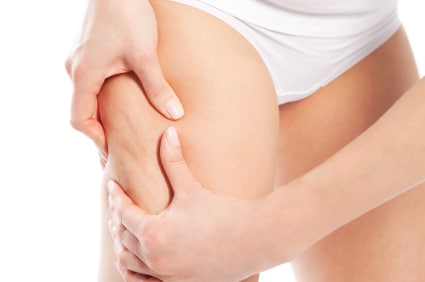 Don’t Forget the Fat Packing Hormones
Don’t Forget the Fat Packing Hormones
You may have heard of the four horsemen, but how about the four hormones – the four fat-packing hormones? If you want to get better control of your weight you need to keep these four hormones at healthy levels. These four hormones are necessary, but if they get too high, they will wreak havoc on your weight.
So what are these four fat-packing hormones? Three of them you most likely have heard of – insulin, cortisol, and estrogen. The fourth of the fat-packing hormones is ghrelin.
Insulin
Insulin drives sugar from the bloodstream into the cells where it can be used for energy. Sugar in the blood stimulates the pancreas to release insulin, and the amount of insulin released is proportional to the amount of sugar in the blood. Insulin also moves amino acids necessary for protein synthesis. All of this is good.
Things go awry when there is more than enough sugar to meet our immediate energy needs. Excess sugar gets stored as glycogen, and then as fat. If insulin levels remain high between meals it prevents the body from releasing calories stored in fat. Therefore, we overeat to fuel our bodies.
There are other factors that contribute to excess insulin including chronic stress, decrease fiber intake, lack of exercise, corticosteroid medications, inadequate protein intake.
High insulin increases the conversion of testosterone to estrogen leading to the deposition of fat in the belly and breast in men. And, in women high insulin converts estrogen to testosterone leading to abnormal hair growth, acne, and atrophy of the breasts.
Cortisol
Cortisol is produced in response to stress (physical, emotional, or mental). In the short-term there is no problem with this. But, if stress becomes chronic or persistent troubles begin. Cortisol blocks thyroid function leading to slower metabolism, stimulates fat storage, and breaks down muscle for energy.
On one hand cortisol stimulates release of fats for energy during stressful situations, and on the other hand, through its effects on insulin leads to fat storage. The key to whether there is going to be a net gain or loss in fat depends on the insulin level. If insulin is low, the net effect is fat loss. If insulin is high the net effect is fat gain. That’s why some people loss weight when they’re stressed, and others gain weight.
Cortisol leads to overeating by stimulating appetite and blocking appetite suppression mechanisms. Cortisol is also catabolic – it breaks down protein. Muscle is protein. Endurance athletes produce cortisol and thus lose muscle mass over time. Sprinters also produce cortisol, but also produce testosterone and growth hormone, which counteract the catabolic effects of cortisol on muscle. That’s why runners look muscular and long-distance runners eventually look frail.
Estrogen
Too much or too little estrogen can lead to fat gain. Excess estrogen occurs in two ways. One through a true increase in the production of estrogen, and the second from our diets and environment – from exposure to herbicides, pesticides, plastics, etc. Stress, impaired liver function, alcohol consumption, lack of exercise, high-fat diets, poor sleep, and obesity contribute to excess estrogen.
Too much estrogen in both men (from conversion from testosterone) and women leads to fat gain in the belly, while too little estrogen in women leads to fat gain around the hips and buttocks in women.
There can also be too much estrogen relative to progesterone, which is called estrogen dominance even though the absolute amount of estrogen is lower than normal. This can also to lead to fat gain as progesterone (which is more deficient than estrogen) counteracts the effects of estrogen.
Ghrelin
Ghrelin is produced in the stomach. When the stomach is empty, ghrelin is released triggering our appetite center in the brain. Ghrelin makes it challenging to lose weight because as soon as the stomach is empty ghrelin is produced and released stimulating appetite, a powerful force to control and overcome if weight loss from reduced caloric intake is to occur. That’s one reason why more frequent eating of smaller meals is more effective in many for controlling weight, which seems counter-intuitive.
Why Exercise and Diet Alone Fall Short
Unless you keep these four fat packing hormones at healthy levels, exercise and diet become less effective in maintaining weight past the age of 40 or so. These four hormones lead to fat gain, but there are many more hormones that facilitate weight loss which we will discuss in “Achieve Weight Loss With These Hormones” (available 7/13/13).
See related articles.
“Causes of Elevated Estrogen Levels”
